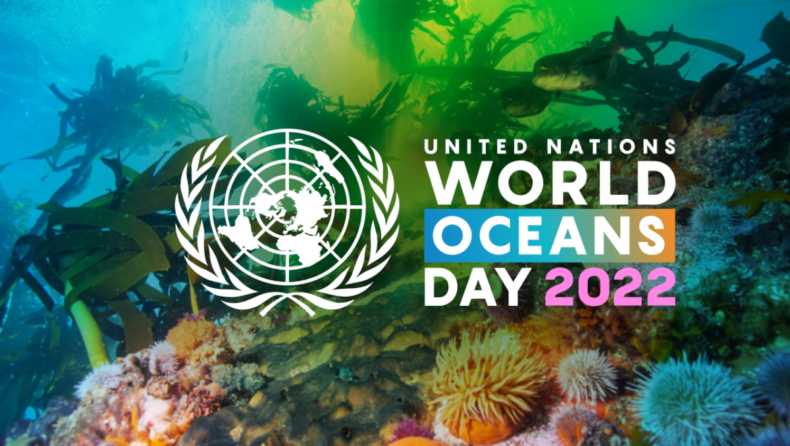“The Ocean is a mighty harmonist.” – William Wordsworth
Water is one of the key sources of natural energy that makes Earth apart from other planets. Ocean sectors are predicted to employ 40 million people by 2030. Oceans, glaciers, and other bodies of water can indeed be found on the surface of the globe. Oceans comprise around 70% of the earth’s surface and are home to a wide range of nature and wildlife.
Oceans are essential to the survival of mankind and the preservation of biodiversity. To produce at least 50 percent of Earth’s oxygen, which is essential for facilitating our survival on Earth.
On June 8th, World Oceans Day is commemorated to highlight the importance of conservation in these main ecosystems. This day also raises awareness of the fact that anthropogenic activities are endangering the seas and encourages support for long-term ocean management.
“It is past time to recognize that, to meet the Sustainable Development Goals and the Paris agreement’s climate change targets, we must take urgent collective action to revive the ocean. This necessitates a new equilibrium in our connection with the ocean,” said António Guterres, Secretary-General of the United Nations.
History
The first World Oceans Day was declared on June 8, 1992, during the Rio de Janeiro Global Forum. The session was comparable to one held, at the United Nations Conference on Environment and Development (UNCED), where non-governmental organizations were able to debate environmental challenges.
The announcement of World Ocean Day was made possible by an event hosted by the Oceans Institute of Canada on that day. The Canadian government supported the program, which brought together international scientists, activists, and people with the opportunity to remark on the influence of the seas on the viability of life on Earth.
Theme
“Revitalization: Collective Action for the Ocean” is the theme of World Oceans Day in 2022. Because the ocean is such a vital link connecting us all, it should be protected in the best possible way. On December 5, 2008, the United Nations General Assembly (UNGA) passed a resolution recognizing June 8 as World Oceans Day.
Significance
The oceans sustain billions of people with food while also regulating ecology and supplying more than half of the world’s oxygen through diversification. On the other side, human activities like overfishing, oil spills, and plastic pollution have had terrible implications for water and aquatic life.
World Ocean Day encourages enhanced initiatives and the preservation of additional damage to the oceans while efforts are made to restore their grandeur.
Why is Plastic Waste a Problem?

This aquatic environment is essential for life on earth we can. However, the oceans today face a major threat of water pollution and the threat of plastic waste. To spread awareness and start a much-needed discussion about the state of the ocean, June 8 is celebrated as World Oceans Day.
Although seawater is unsuitable for drinking, it is still a valuable natural resource for the human species. Oceans produce one of the most important sources of life, oxygen.
About 50% of the world’s oxygen is produced in the oceans.
The natural decomposition of plastic might take several years. Of all the plastics used, the plastics used simultaneously have the worst impact on the environment.
Intended for use once, it can take several years to decompose and, in this process, also degrade the soil or water. Oceans are often the dumping ground for plastic waste that keeps water levels low.
In addition to this damage, plastics dumped into the sea go through the process when they break down into smaller microplastics. These tiny particles come into direct contact with marine mammals that act by mistake and often end up eating them. But the cycle does not end there.
People eat these marine animals as food, and the garbage of the plastic eventually returns. The oceans of the world are on the brink of ruin in our hands, and it is important that we go back and recount and reflect on our decisions about the planet.
It is time to switch to environmentally friendly patterns to reduce the production of plastic before it limits the future of the Earth. The event also hopes to promote the international community of maritime citizens and unite the peoples of the world in the global maritime management project.
Some Interesting facts about Ocean:
- Apart from being a spectacular object, the ocean breathes life into the earth as it produces at least 50 percent of the world’s oxygen. The oceans contain 321 million cubic miles (1.34 billion cubic kilometers) of water, accounting for nearly all of the world’s water.
- Seawater, for example, contains roughly 3.5 percent dissolved salt as well as other vital minerals including chlorine, magnesium, and calcium.
- The sun’s heat is absorbed by the oceans, and humans produce about 30% of their carbon dioxide. Oceans absorb heat and transport it to the atmosphere, where it is scattered across the earth. This method of heat distribution affects the global climate and helps control global temperatures.
- Oceans operate as winter heaters and summer air conditioners, natural air conditioners.
- More than 80% of the oceans remain unmapped and unexplored, making them an intriguing feature of our planet.
- Some marine volunteers are also fascinated by the number of species that have yet to be discovered. The world’s oldest living organisms, such as jellyfish and horse crabs, can be found in the sea.













